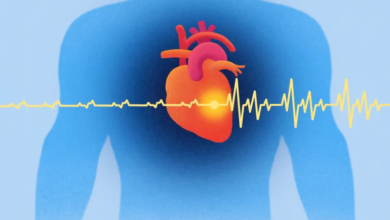German Heart Foundation Warns: High Blood Viscosity Can Be Life-Threatening

Table of Contents
The German Heart Foundation has issued a warning about the serious health risks associated with increased blood viscosity, emphasizing that this condition can significantly strain the cardiovascular system and pose a life-threatening danger if left untreated.
Medically known as polycythemia, this condition occurs when the number of red blood cells in the bloodstream becomes excessively high, resulting in thicker, more viscous blood. This makes it harder for the heart to pump blood through the arteries, increasing pressure on the circulatory system and heightening the risk of blood clots, heart attacks, and strokes.
Possible Causes
The foundation explains that high blood viscosity may be a primary condition, potentially caused by genetic predisposition or heavy smoking. It can also serve as a warning sign of underlying medical issues, such as:
- Reduced oxygen transport in the blood
- Gastrointestinal inflammation or food intolerances
- Dehydration
- Heart conditions, such as valve defects or heart failure
- Bone marrow disorders
- Lung diseases, including COPD or bronchial asthma
- Certain types of cancer
Warning Symptoms
Several symptoms may indicate abnormally thick blood, including:
- Pronounced facial redness
- Headaches
- Dizziness or lightheadedness
- Ringing in the ears (tinnitus)
- High blood pressure
- Widespread itching
The German Heart Foundation stresses the importance of seeking medical attention promptly if these symptoms appear. A blood test can determine the proportion of red blood cells relative to the total blood volume.
Diagnostic Marker: Hematocrit
The key measurement for blood thickness is the hematocrit value, which reflects the volume percentage of red blood cells in the blood. Normal hematocrit levels are:
- 37% to 45% for women
- 42% to 50% for men
In cases of increased blood viscosity, hematocrit levels exceed 50%, signaling a need for immediate medical evaluation and intervention.
Conclusion
The German Heart Foundation emphasizes that early detection and regular monitoring of blood viscosity are critical to preventing serious cardiovascular complications. Recognizing symptoms early and consulting a healthcare professional can help manage the condition and protect long-term heart and brain health.








